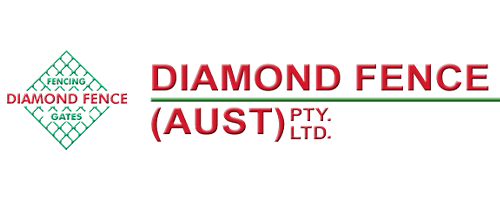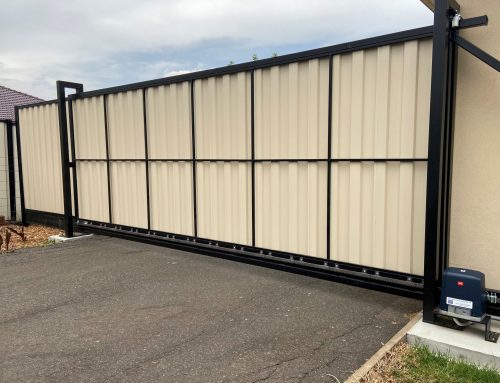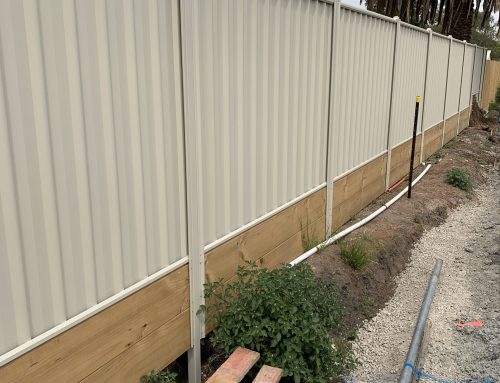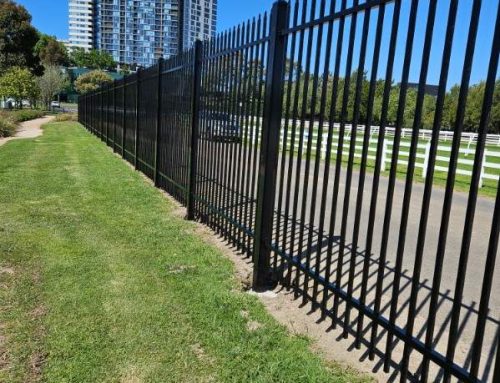Rusting Of Galvanized Steel May Come As A Surprise, Yet It Is Not Impossible
Galvanized steel rusts. Yes, it’s true. It may come as a surprise as there are countless times we have mentioned that if you want to protect your steel fence from corrosion, you are better off using galvanized fencing material. Sounds familiar? This statement still holds. Why then would we even start by saying that galvanized steel rusts? Without any further confusion, let us explain.
For us to understand why galvanized steel corrodes, we need to remind ourselves about the galvanizing process. Simply put, galvanizing is a process where the layer of zinc is bonded to the underlying metal.
The thickness of the zinc layer will depend on the galvanizing process used. Remember, there is more than one. The galvanizing process chosen plays a critical role as it will determine how long your galvanized steel will keep on fighting against the corrosion. Also, the functionality of the galvanized steel in different environments (in and out), and the looks of the final product, will depend on the process.
The examples of galvanizing processes are hot dip galvanizing and electro-galvanizing. For instance, hot dip galvanizing has a thicker zinc layer compared to electro-galvanizing. Also, with the hot dip galvanizing process, you are able to cover all the edges and corners. That is the reason why hot dip galvanizing method is the most popular and widely used.
Okay! Let’s start with the basics. The reason why galvanized steel corrodes comes down to the galvanizing type and how thick is the galvanized zinc coat as this coating is the one doing the job and protecting your metal from corrosion. Another important factor that cannot be missed is the environmental surroundings of the metal.
Below you can find some of the factors that affect galvanized steel, resulting in corrosion and rust:
- Relative humidity (> 60%)
- Salt in the water or air (sodium chloride)
- Wet surroundings
- Acids. Especially sulfur acids (volcanoes, hot springs, etc.) or sulfur dioxide (pollution). Even acidic foods and drinks.
Galvanized steel has good resistance to aluminium, tin, zinc, and lead, meaning galvanized steel is corrosive to all metals except the ones we just named.
Now, let’s answer the question: how long does galvanized steel last? A quick answer would be – a long time! A bit longer answer would be – it greatly depends on the environment it is in. Those galvanized metals that are kept dry will last much longer than the ones that are outside exposed to all the weather conditions and other factors. If you do need metals for outdoor usage, use hot dip galvanizing because it will give better protection, as we mentioned above. It will provide a thicker layer of zinc, and during the galvanizing process, all the tiny corners will be covered.
There are predictions (based on a corrosion study) for how long the zinc layer on the galvanized steel would last. They are as below:
- In soaked or wet environments the zinc layer will last 10 YEARS.
- In environments with a relative humidity of 100%, it would last 34 YEARS.
- In environments with relative humidity below 60%, it would last as much as 211 YEARS.
( Source: Suzumura, Keita & Nakamura, Shun-ichi. (2004). Environmental Factors Affecting Corrosion of Galvanized Steel Wires. Journal of Materials in Civil Engineering. 16. 1-7. 10.1061/(ASCE)0899-1561(2004)16:1(1)).
To sum it up, the thicker the protective zinc coating, the longer galvanized steel will be protected from corrosion. It also depends greatly on the environment. For example, industrial and tropical marine environments are the most corrosive, while suburban and rural are the least.
If your steel fence or gate has been damaged by corrosion, you can contact us, Diamond Fence. We offer gate and steel repairs, and of course, steel fencing services across Melbourne and Greater Victoria.
Diamond Fence is one of the trusted fencing companies in Melbourne, therefore don’t hesitate and contact us today! Call us on (03) 9753 4566, shoot us an email on info@diamondfence.com.au, or just get a FREE online quote.








